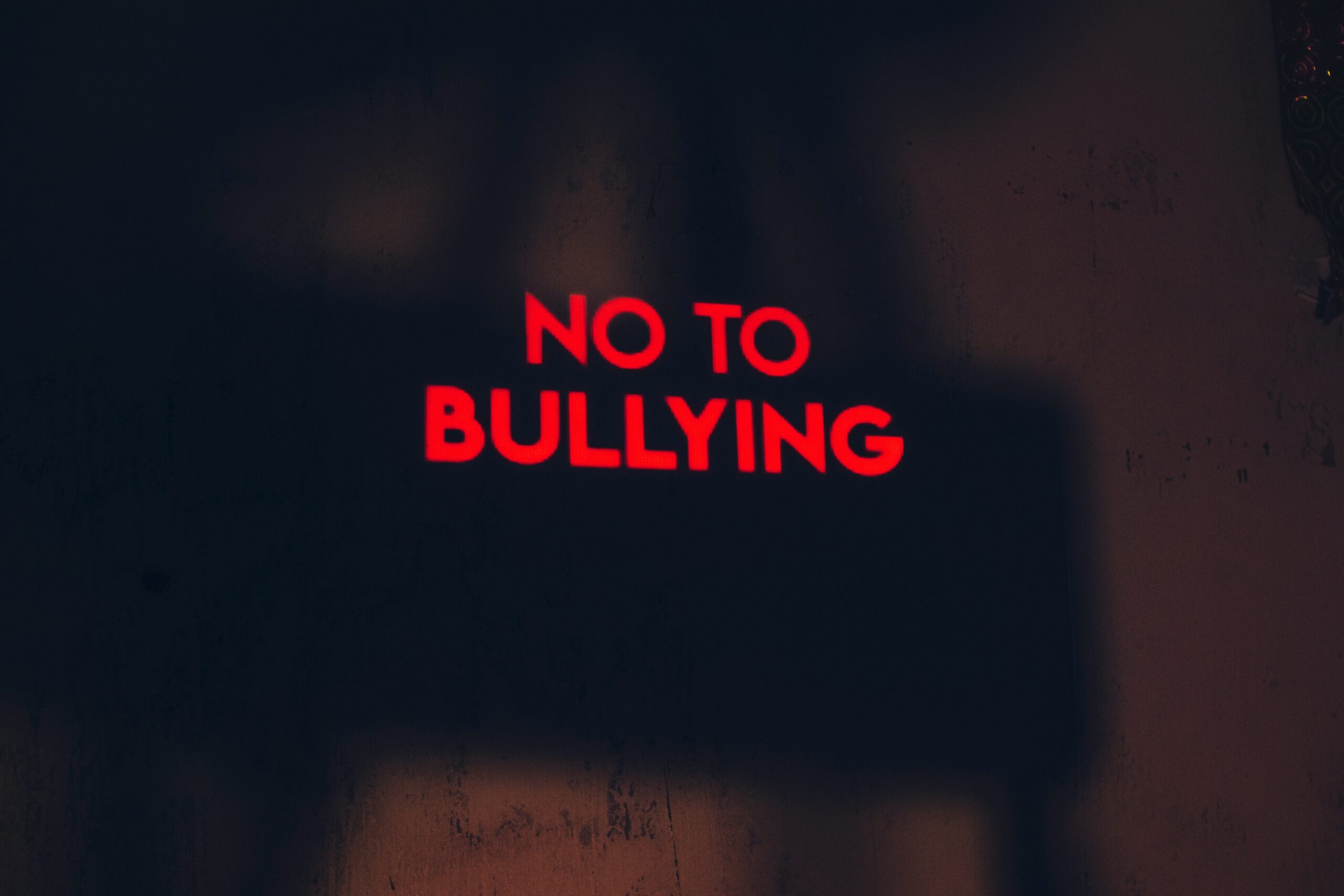Bullying is defined as “behaviour by an individual or group usually repeated over time which intentionally hurts another individual or group either physically or emotionally”
Bullying is the intentional hurting of a person or group, and it usually occurs when a relationship involves an imbalance of power, a person can become the victim of bullying at any age
Bullying can have a significant impact on a person’s Mental and Physical Health.
A bully who can also be defined as the perpetrator, can use Physical / Psychological or Emotional abuse as part of their tactics to intentionally hurt a person or group
- Physical Abuse: This can involve kicking, pushing, hitting or theft
- Verbal Abuse: This can involve name calling, threats, racial or homophobic comments
- Emotional / Psychological: This can involve Isolating someone from games or activities, not allowing them to be part of the peer group
Bullying can also occur in many other forms. Further information is provided within our resource links below
Signs that a Child or Adult are being bullied include a change in their behaviour, noticing a child or adult becoming more anxious or fearful, starting to avoid certain locations or not wanting to attend events or activities they once enjoyed. Their attitude towards a learning or work environment has changed and become negative resulting in a lack of engagement and enthusiasm
Within the workplace, an employee who starts to become withdrawn, takes increased amounts of sick leave, does not want to engage with colleagues like they used to or attend any social activities outside of work can also be a sign that a person is being bullied and doesn’t want to disclose or discuss what is happening
Changes in behaviours should be taken seriously and there is often a reason why these changes take place which shouldn’t be ignored
With the increase of social media and use of the internet, bullying is no longer limited to a learning environment or workplace, and often continues online which is known as Cyberbullying
Cyberbullying means the victim cannot escape the perpetrator or group and the abuse continues, just in another form
The list of resources below is here to help and support you and can also be shared with others who you know may find this information resource helpful
The resources cover different types of bullying, with the aim of supporting Children, Adults, Parents and Caregivers
Bullying Support Links
Bullying Support
https://www.themix.org.uk/explore-our-topics/school-and-university/how-to-stop-bullying/
https://www.nspcc.org.uk/what-is-child-abuse/types-of-abuse/bullying-and-cyberbullying/
https://www.youngminds.org.uk/young-person/coping-with-life/bullying/
Bullying in the Workplace
https://www.themix.org.uk/work-and-study/working-life/bullying-at-work-1348.html
https://www.nationalbullyinghelpline.co.uk/employees.html
https://www.acas.org.uk/bullying-at-work
Cyber Bullying
https://www.themix.org.uk/explore-our-topics/school-and-university/cyberbullying/
https://www.nspcc.org.uk/what-is-child-abuse/types-of-abuse/online-abuse/
https://www.nationalbullyinghelpline.co.uk/cyberbullying.html
Financial Bullying
Financial abuse: spotting the signs and leaving safely (moneyhelper.org.uk)
Information for parents, caregivers or friends supporting someone who is being bullied
NSPCC Support for Parents and Caregivers
https://www.nspcc.org.uk/keeping-children-safe/support-for-parents/dealing-with-bullying/
Young Minds Support for Parents and Caregivers
Bullying | Parents Guide to Support | YoungMinds
Further Information
https://www.familylives.org.uk/advice/bullying
Supporting a friend
https://www.themix.org.uk/sex-and-relationships/friendship/helping-friends-beat-bullying-6249.html
Verbal Bullying
https://www.familylives.org.uk/advice/bullying/general-advice/verbal-bullying
Social Bullying
https://www.familylives.org.uk/advice/bullying/general-advice/social-bullying
